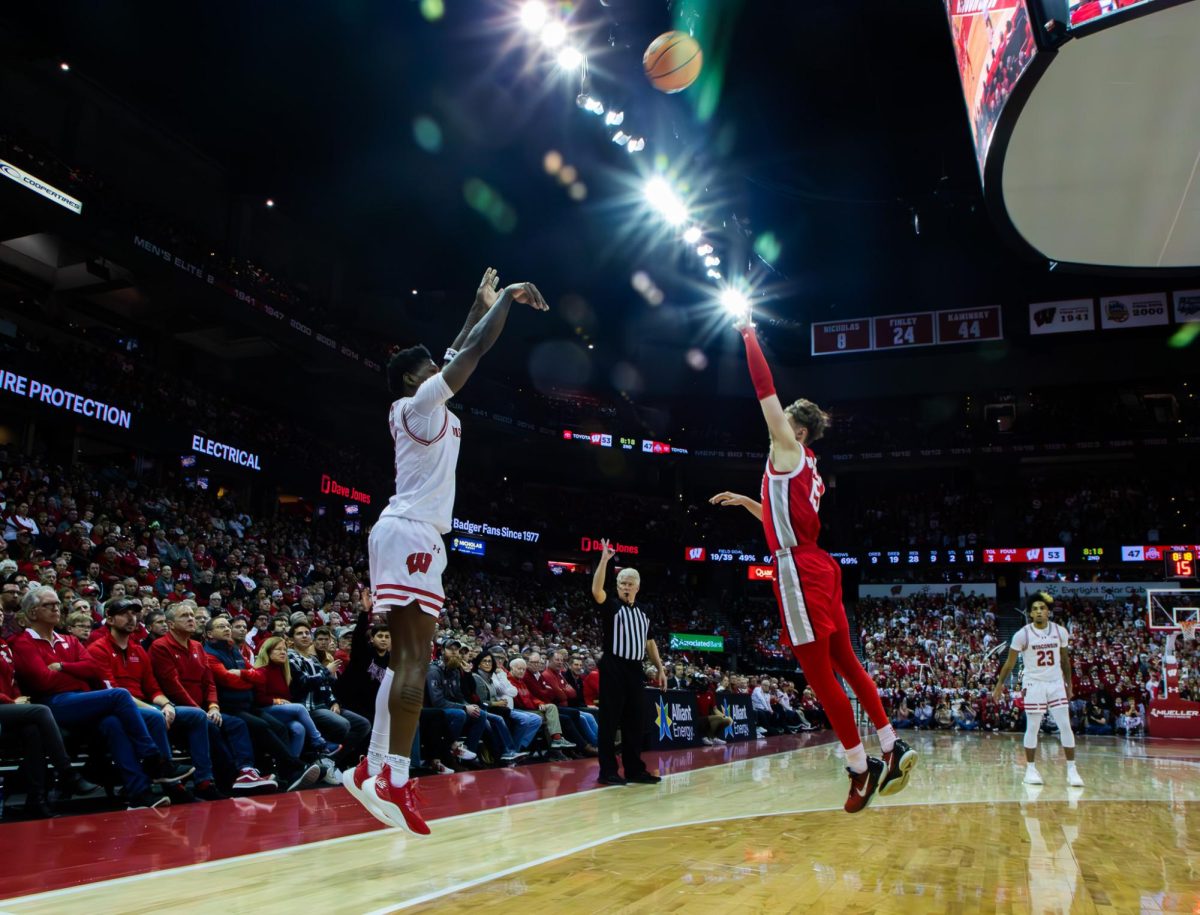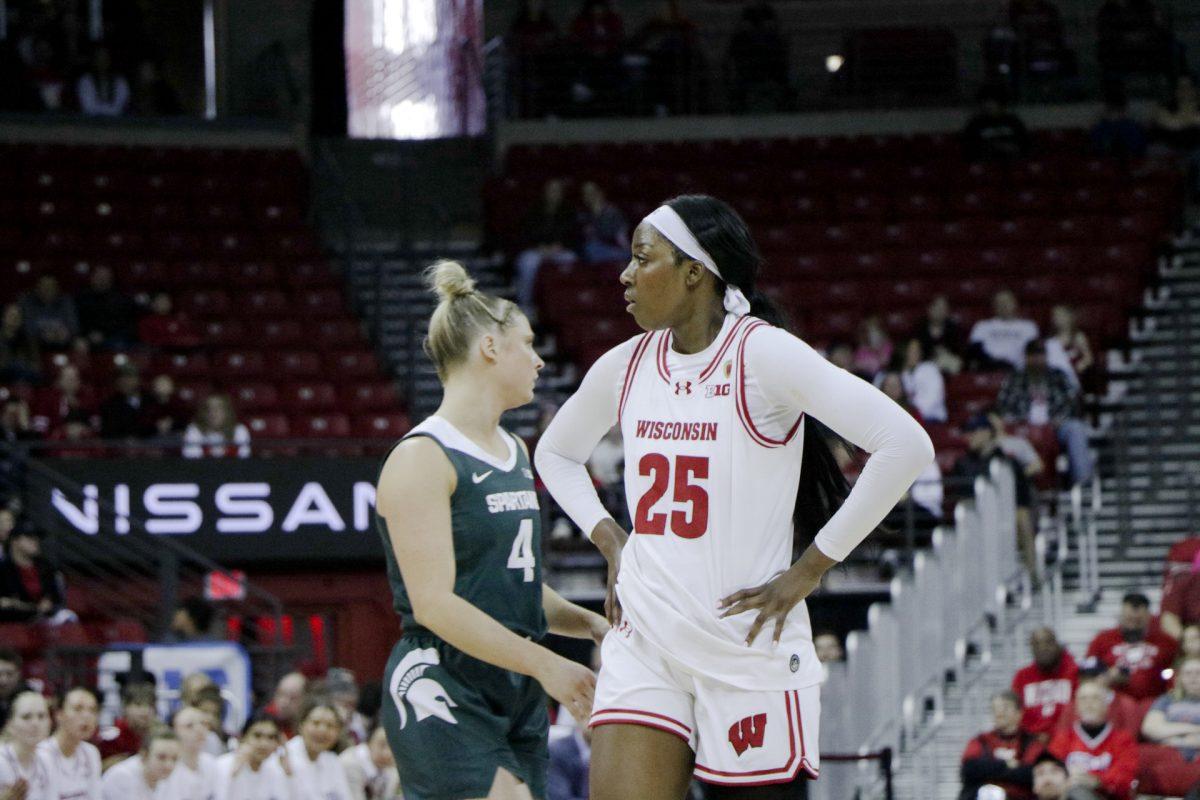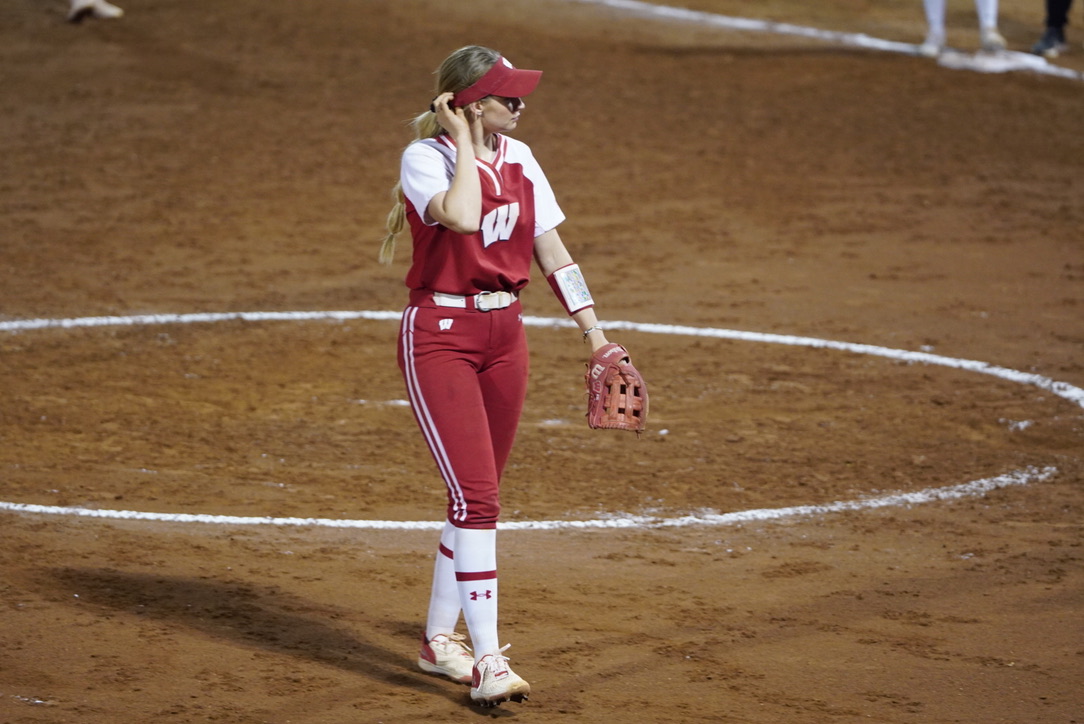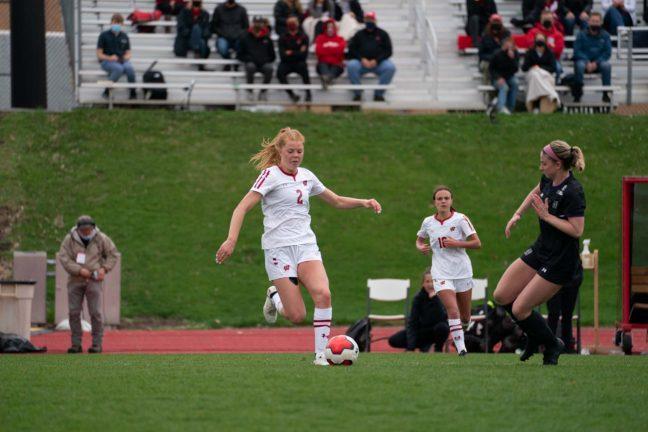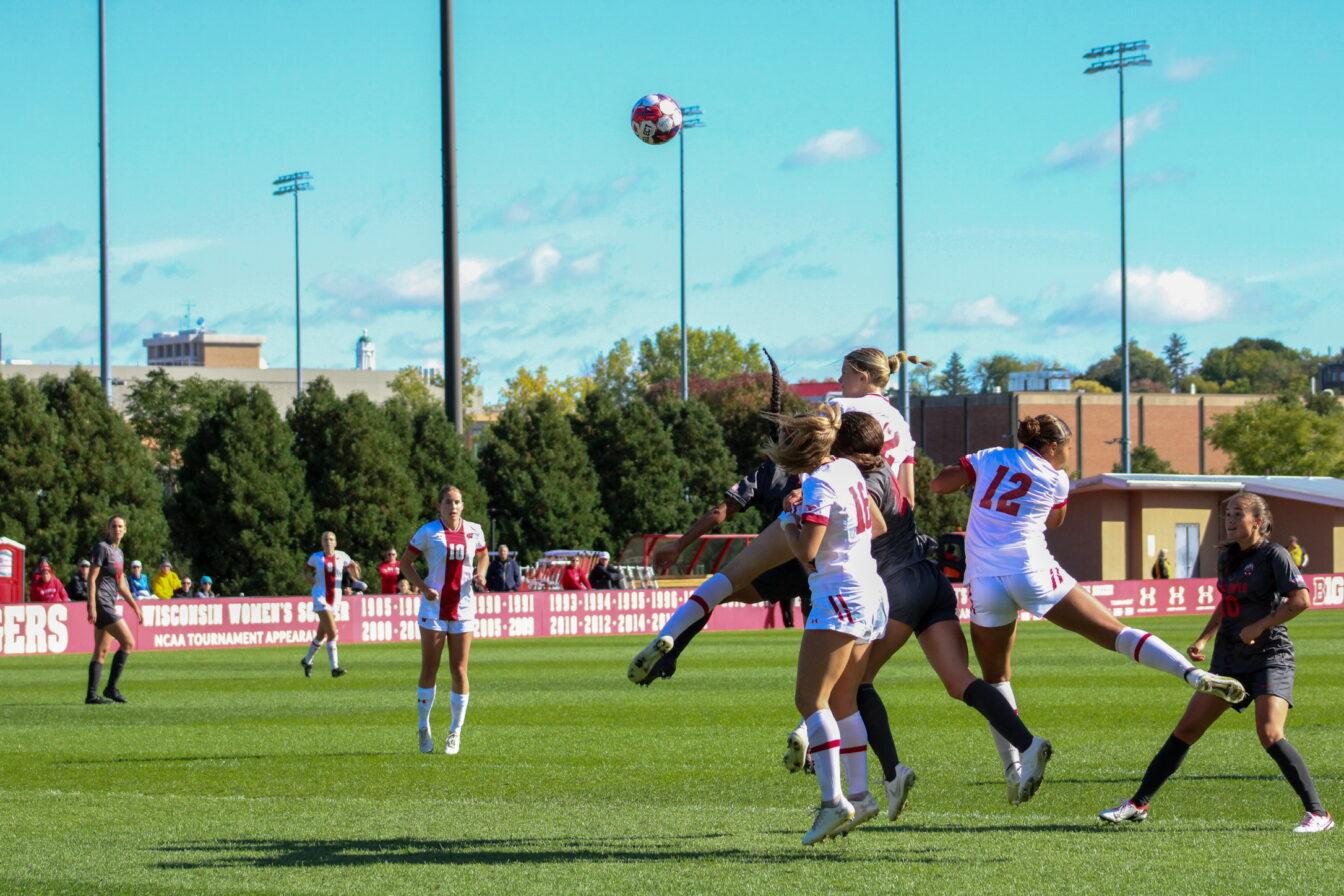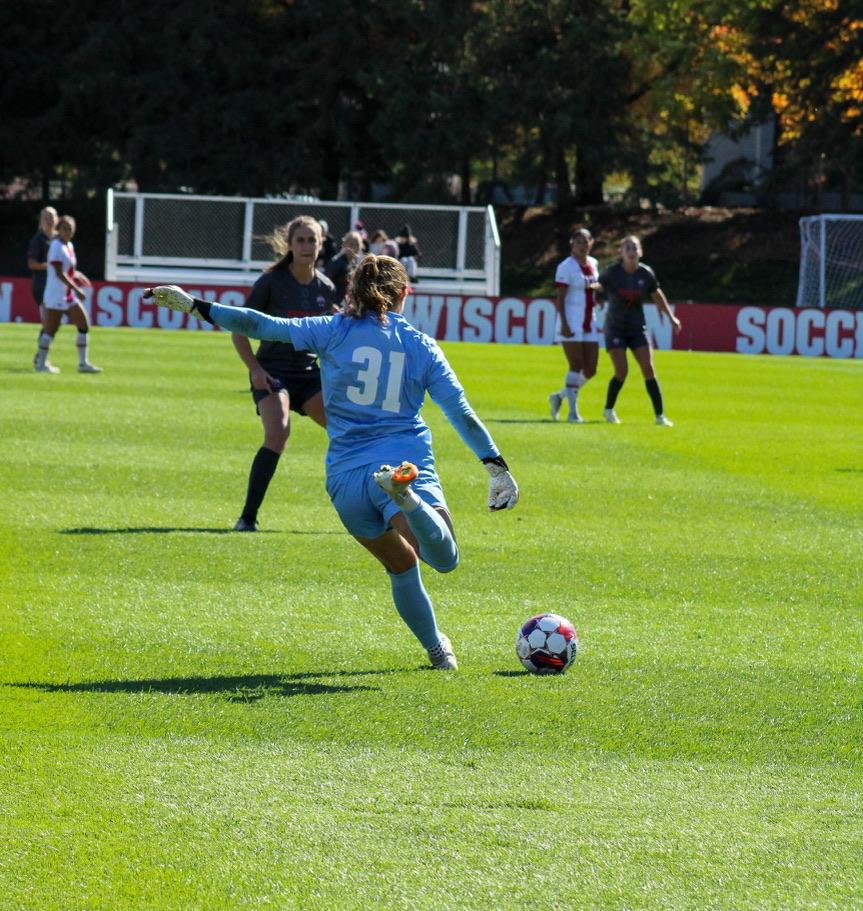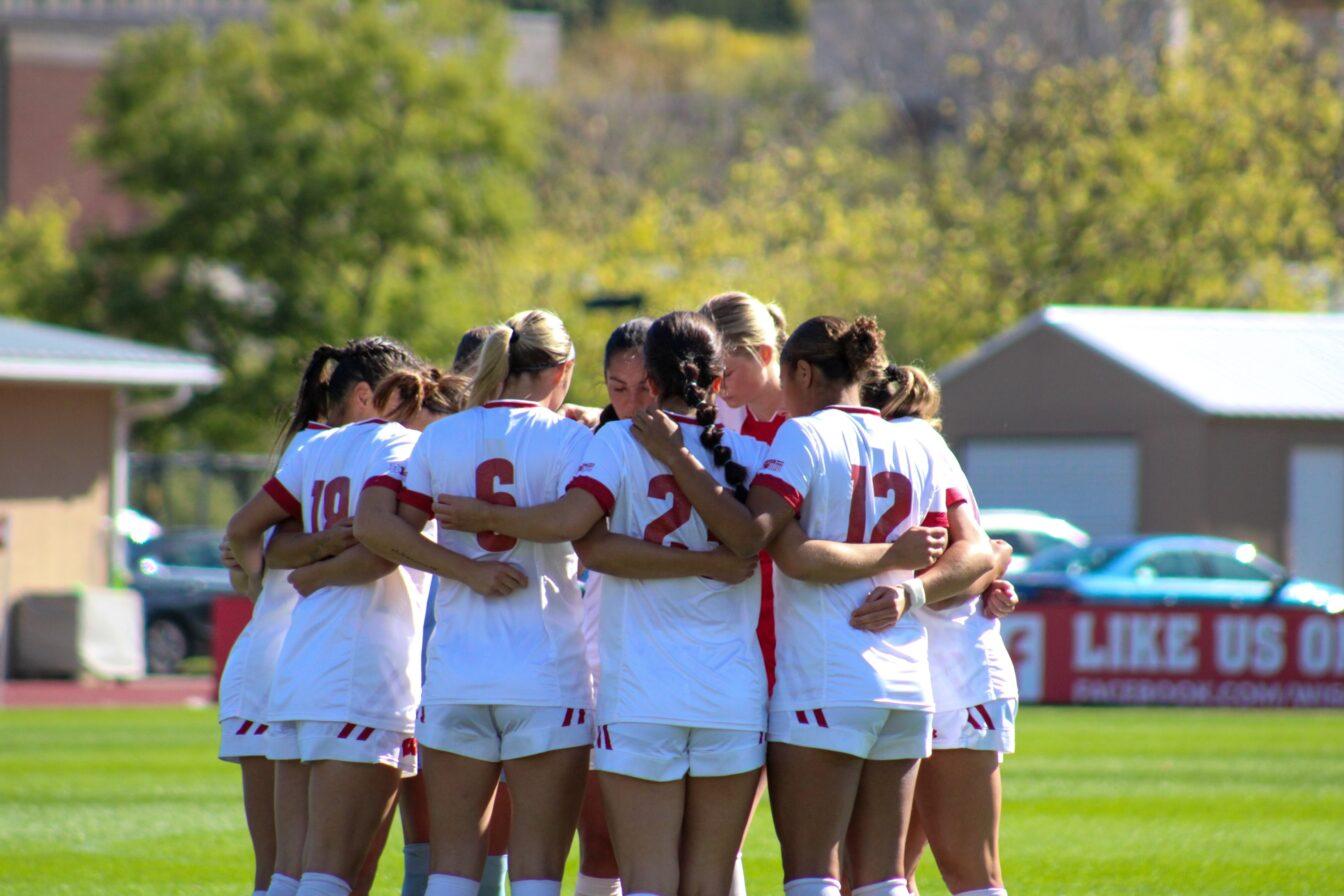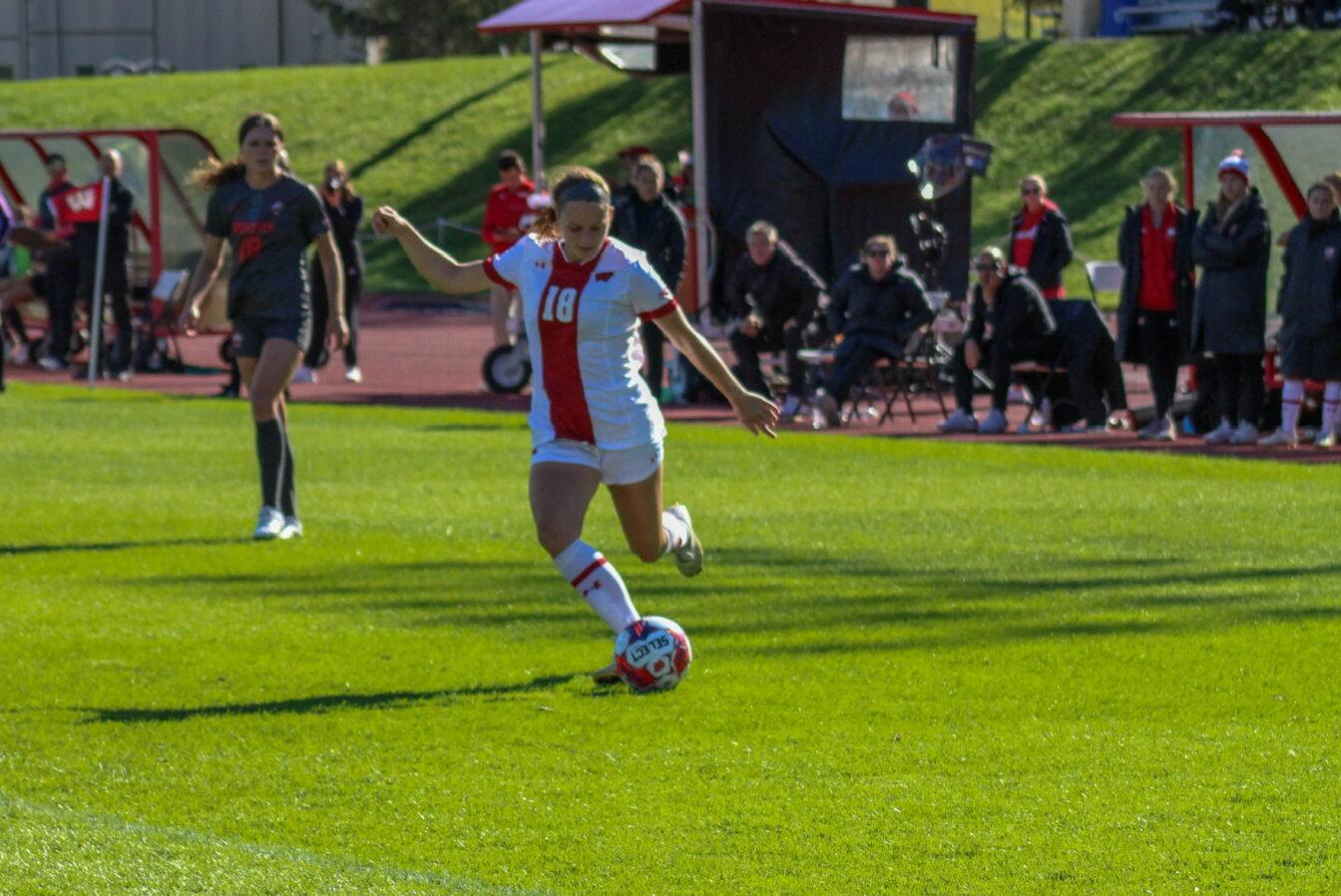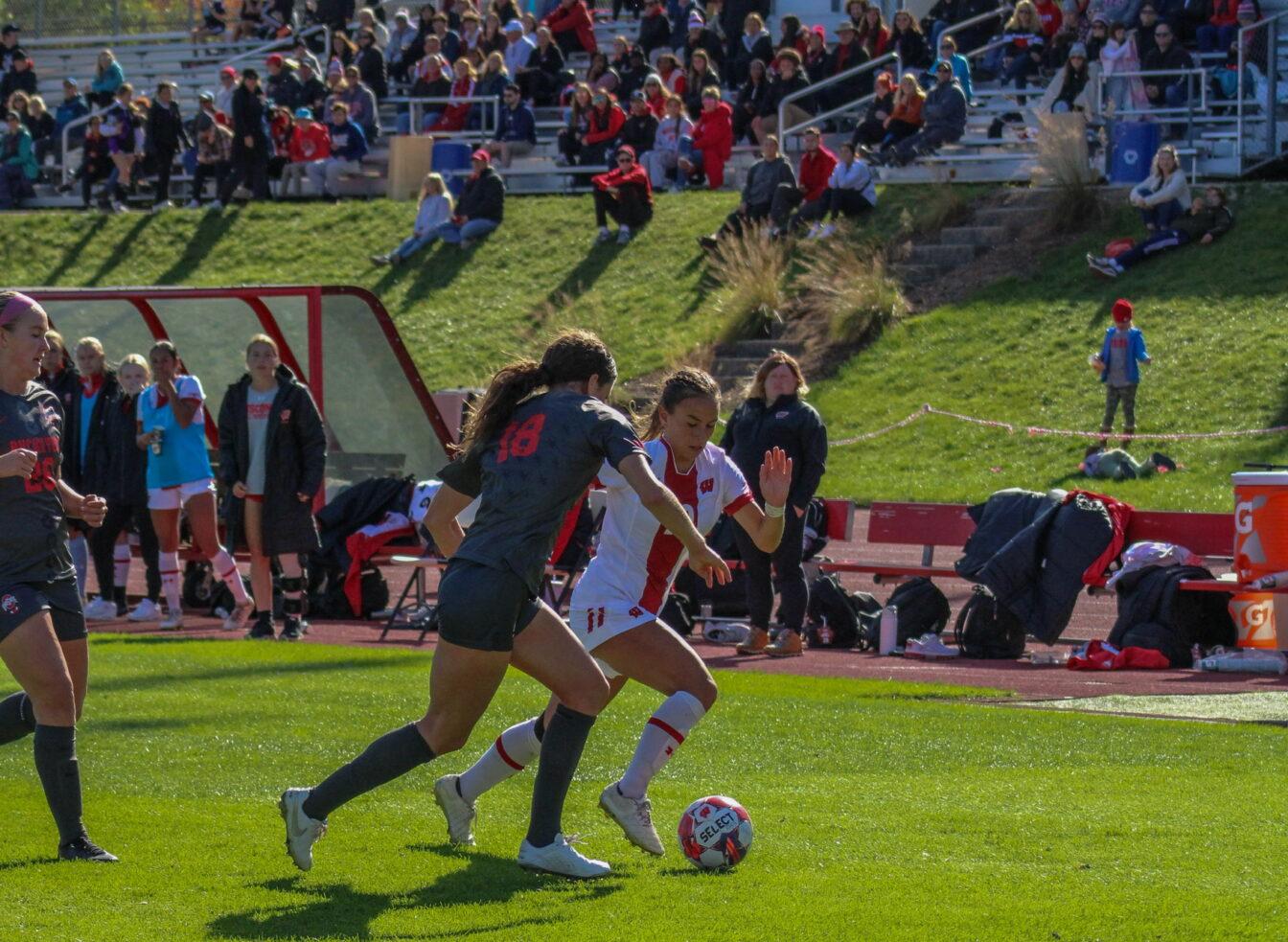
It is 85 millimeters in diameter, seven millimeters thick and weighs less than 400 grams. It is smaller than most smart phones, but for Carmelina Moscato, the newest addition to the University of Wisconsin women’s soccer coaching staff, her Olympic bronze medal is beyond a possession. It is a symbol of her perseverance through a turbulent career and of the profound pride that it brought to her country.
Moscato began playing soccer at the age of 4 in her native country of Canada. By 16, she had already earned a spot on the Canadian youth national team and the chance to play in the inaugural FIFA U-19 Women’s World Cup in which Canada took second place.
With her early accomplishments, Moscato’s soccer career seemed to be on the fast track to success, and she was ready to see how far it would take her.
“[Playing for the youth national team] was the most exhilarating thing in the world,” Moscato said. “I knew it felt right. Sometimes people shy away from opportunities, but all I know is that I wanted to move towards it and figure out what there was in it.”
Moscato was then called up to the women’s national team in 2003. She continued to play for her country while preparing for a career in collegiate soccer. She chose to attend Penn State, where she would play for former Penn State coach and current Wisconsin women’s soccer coach Paula Wilkins.
Moscato said it was not a difficult decision to choose Penn State when Wilkins came to her door.
“I was quite simple. I’m more of a people person; I didn’t get all into the hype,” she said. “Paula and Tim came to my door and did a home visit. They were very genuine, authentic people and very passionate. I was buying into what they were saying and as soon as I stepped on campus, I knew.”
While playing for the Nittany Lions, Moscato continued to suit up for the Canadian national team. She traveled with the team to the 2003 World Cup, but only saw the field for one minute of play. In 2004, the Canadian women failed to qualify for the Athens Olympics, and she was released from the team.
Along with no longer playing for her country, Moscato failed to see much action with her Penn State squad until her senior year with the team, when she started all 25 games.
After graduating, her once promising soccer career seemed to be on the decline, so she decided to put her playing career on hold and took an assistant coaching job with Louisville’s women’s soccer team.
While Moscato was working in Louisville, the Canadian national team qualified for the 2008 Beijing Olympics, but Moscato, still hurt from being released, could not bear to watch her former teammates.
“I didn’t watch. That’s how hard it was,” Moscato said. “I was always supportive of my friends and my teammates, but I didn’t do it in the way of watching them play. It was emotionally tough to see it, and I disconnected from it on purpose.”
In 2009, the Canadian national team hired Carolina Morace as its new coach. It was around this time that old teammates started to call their former teammate, trying to convince her to come back.
Having not played competitively in three years, Moscato thought there was no way she could seriously compete at that level again. After more and more phone calls, Moscato’s curiosity started to build to the point where she finally called a personal trainer friend to help her get back in shape.
Moscato started to get back into playing shape and was amazed by how great she was starting to feel. In 2009 and 2010, Moscato made it back to the competitive soccer scene, where she played for a Serie A Italian team. It was there that Morace, the Canadian coach at the time, saw Moscato and decided to put her back on the Canadian team.
In 2011, Moscato’s Canadian national team went to the World Cup in South Africa, but she did not play a single minute for the team. It was in 2012 when Moscato finally got her chance to shine.
She went to the 2012 Summer Olympics with the Canadian national team. Moscato reflected that just being able to go to the games and experience that moment with her teammates was something she will never forget.
“It was surreal,” Moscato said of being at the Olympic Games. “It was a dream come true in the sense of ‘Am I really here?.’ The battle was the battle. The fitness, competition and lack of playing time – amongst all of that stuff, for some reason, the stars aligned and things came to a head. It all made sense at that moment.”
She went on to start at center back and played all 90 minutes in every single Olympic game for the Canadians. That included a semifinal match with the United States, which the U.S. won in overtime, and a victory over France to earn a bronze medal for herself and her country.
“It felt like a dream. That’s the kind of stuff you see on TV,” the bronze medalist said. “We were in Wembley Stadium, one of the most historical football stadiums there is. I was kind of looking around and all you see are lights flashing. I look to my right, and I see the U.S. and Japan, the world champion and the runner-up.
“We [finished] dead last in the World Cup last year, and now we are standing on the podium with some of the world’s best players. It was a feeling of fulfillment, satisfaction and total pride. It was a 10-year journey of ups-and-downs.”
After the Olympics, Moscato decided to reunite with Wilkins, her former coach, at Wisconsin, where she was offered an assistant coaching position with the team just two weeks ago.
Wilkins explained why she decided to bring Moscato onto the Badgers’ staff.
“I want to make sure that we have a good connection with the players,” Wilkins said. “I know that she cares about the people that she works with and plays with. I think the other part is that she knows the game very well. She knows what it takes to be at the highest level and I think to have that kind of role model is fantastic.”
Having played defense, Moscato is hoping to aid the defensive unit. Redshirt sophomore defender Alexandra Heller couldn’t be happier with her addition to the Badgers’ coaching staff and what she has done for the defensive players.
“I think she has done a lot already,” Heller said. “Just by talking to her I can tell that she is so smart about the game of soccer. We’ve had meetings with her and watched film, and she just brings a whole other level of knowledge to our backline.”
Surprisingly, Moscato says no one from UW has asked to see her medal. She knows the time will come for her to share her story with the team. But for now, she just wants to do what she can to help her new team.
“Coaching right now has been a perfect fit with where I am in my life,” Moscato said. “I am very happy with where I am at right now. I want to make these girls’ experience in college. I had a great one and you want them to have that. So I will do whatever I can to facilitate that.
“At some point I will share my story with them, and I would love to hear their stories just as much.”










